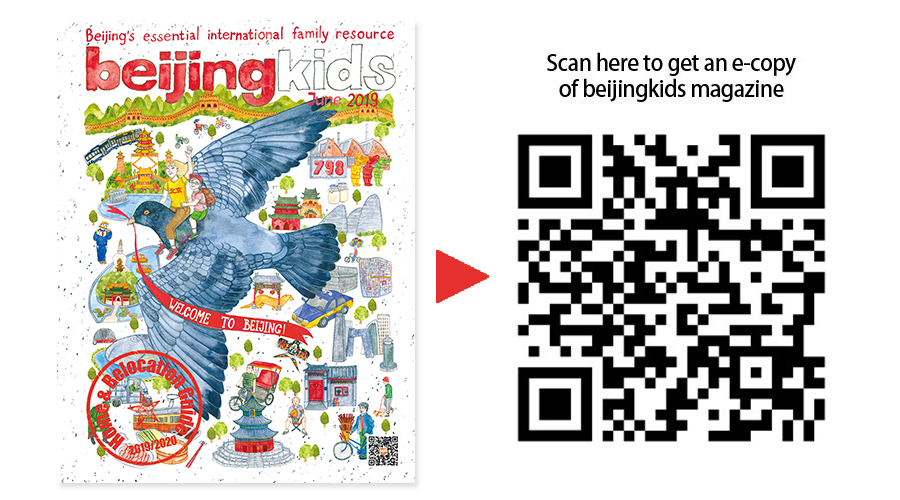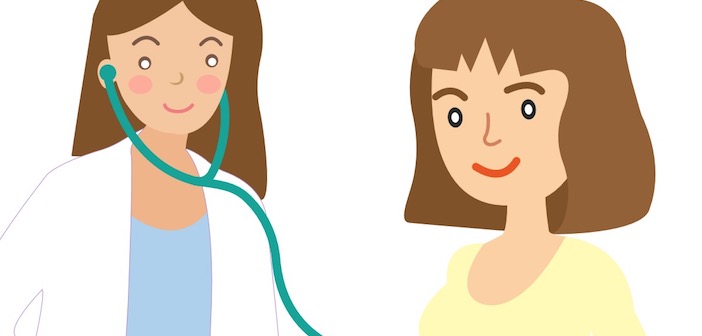Finding out your pregnant is both a magical and restless time for expectant couples. Throw in living and working in a foreign country and being far away from family, and you have yourself a whirlwind of prenatal anxiety about what the next nine months have in store for you and your family.
Hold it right there with the panic. First of all, there are a number of advantages to having a baby in Beijing and there are definite benefits in the maternity process that you won’t find in other countries. There is much to look forward to that goes far beyond just the relinquishing of a seat on public transportation. For instance, you can usually expect at least three months of paid maternity leave during your recovery, most of the time at least two weeks of paternity leave, and even multiple lactation breaks at work to either go feed or pump milk for your baby. This, along with affordable help after the baby comes, makes that transition after your child’s arrival much more manageable. But we are getting ahead of ourselves. Let’s start from the beginning.
Getting Started
Chances are if you are reading this with a bun in the oven, or a dumpling in your basket, or whatever metaphor takes your fancy, you have already made it through the initial consultation to find out if your pregnancy test was indeed accurate.
After you receive this confirmation it is time to start looking for a hospital which is best suited for your needs. The first factor you need to take into consideration is what you can afford, as this determines whether or not you should be looking at international or local care. We decided to look into both local and international hospitals. After looking over a number of hospitals online, we whittled it down to five options; three international and two local. Be sure to try and look into hospitals that will be able to meet your birth plan expectations. For example, if you would like to have the option of a water-birth, ask for details about the facilities and birth options available at the hospitals you are interested in. Just like when shopping around for a new home, go and visit hospitals, talk to staff, ask for a tour of the maternity ward, and don’t forget to follow your intuition.
When looking into local options bare in mind that this may come with its own set of challenges. This might include not having the luxury of a doctor or staff that speaks Chinese. However it can be done and because having a baby is a very common procedure, these hospitals are more than capable. Despite this, they operate very differently from what we are accustomed to in the west. I visited a number of reputable local hospitals, and it’s important that you reflect upon what may be personal deal-breakers for you or compromises that you are willing to make. To avoid having to make compromises and in some cases sacrifices, many foreigners end up selecting a pricier international hospital.
That being said these hospitals are pricey for a reason. I gave birth at Beijing United Family hospital. Although one of the pricier on my list of hospitals, this choice offered comfortable accommodation, decent Chinese and foreign food options, English-speaking staff, and the necessary amount of privacy you would want during labor and recovery. In fact, this kind of hospital is almost designed to look like a furnished hotel room, with private bathrooms and showers.
As mentioned a tour of the maternity facilities is key for an expectant couple. Usually, before you decide on which hospital you would like to continue at, there will be a comprehensive tour of the facilities so that you will see exactly what you are paying for. If you want the big day to be at one of these international hospitals but the monthly checkups at a local hospital, to save some money, this is also an option.
If you have insurance that covers maternity, then check if you have access to direct billing with your providers. If not, depending on your finances you may be able to pay for a maternity package up front, which cost you can later claim through your insurers. Paying for each prenatal hospital visit separately will be more costly than buying a maternity package and remember that your newborn baby’s vaccinations are unlikely to be covered by your insurance providers. Below you will find a list of popular hospitals.
Beijing United Family Hospital
This is likely the most luxurious option in Beijing’s birthing scene. With 20 years of service in Beijing and six other locations in China, they also have Joint Commission International (JCI) accreditation, which is a fancy way of saying that they are as good as it gets.
• Address: 2 Jiangtai Road, Chaoyang District. 날捺혐쉥憩쨌2뵀 (5927 7000)
Amcare Women’s and Children’s Specialized Health
Operating in Beijing for 11 years, this hospital chain focused on women’s and children’s health currently has branches in four cities and offers excellent, modern facilities. This is a popular option due to the sheer convenience of their services, with three locations in Beijing alone.
• Lido Address: 9 Fangyuan Xilu, Chaoyang District. 날捺혐렐蹈鮫쨌9뵀 (6434 2399)
• Yayuncun Address: Bldg 5 Anhui Beili Yiyuan Chaoyang District. 날捺혐날捺혐갛쁜굇쟁惱蹈5뵀짜 (400 100 0016)
• Wanliu Address: 7 Wanliu Zhonglu, Haidian District. 베듯혐拱진櫓쨌7뵀 (400 100 0016)
Oasis International Hospital
First opened in 2012, and located near 798, this is a convenient medical center for families in the Wangjing or Shunyi areas. Also with JCI accreditation, you can expect top-notch modern facilities, with homelike private rooms and delivery suites that offer comfort, safety, and privacy for patients and their guests.
• Address: 9 Jiuxianqiao North Road, Chaoyang District. 날捺혐아鉤픕굇쨌9뵀 (400 876 2747)
What’s in a Package
The package usually adds up to a total of 13 visits including all of the necessary laboratory tests, consultations, and physical examinations. If you can’t afford the full 13, there are also cheaper options consisting of five or ten visits. These consultations and exams usually begin after week 14 and continue in varying degrees of frequency throughout the term.
On every visit, you will receive a series of tests including but not limited to urine and blood analysis, a 15-minute fetal Doppler monitoring session of your baby’s heartbeat, and a checkup from a physician, who usually explains some of the findings from your tests. The doctor will also provide prenatal counseling and general healthcare knowledge to make sure that you are making healthy decisions while your baby comes to term. Finally, the climax of your visit will no doubt be the obstetric ultrasound. These will usually take place at every other visit.
One of the most exciting parts of the prenatal process is the discovery of the baby’s sex. This is important for many families as it determines everything from the name to the color scheme of the bedroom or wardrobe. This being said, it isn’t always possible to gain this knowledge at a public Chinese hospital as it is technically against the law. Most of our prenatal examinations took place at a Chinese International Hospital. We planned to reveal the sex of our baby at our gender reveal and baby shower party. We had asked for our doctor to note down the sex of the baby and to deliver it to us in a sealed envelope. In what was a hilarious exchange in the doctor’s office, my husband and I were told quite bluntly that we were having a boy. The sentiment of what we were trying to do was lost somewhere in translation. More often than not for foreign couples at international hospitals, they will make an exception, so you can ask a little question like “should we buy pants or dresses,” and they will likely let you know.
Around the 34th week, you will also go through a mandatory birth rehearsal so that you are aware of the process of admitting yourself to the room and making sure that the hospital is ready for your arrival. I had originally planned a home-water-birth, so there was no rehearsal for me but the show must go on. Especially if you are nine centimeters dilated thirty minutes after having your waters break. If you do happen to get that all important rehearsal day in, it will give you the opportunity to have one last tour of the facilities so that you aren’t freaking out when the time comes to welcoming your little human to the world.
Not so Laborious Maternity Vocab
Finally, we’ve compiled a list of necessary terms, that will hopefully make things a tad easier in days leading up to and on the big day itself.
Birth – 出生 [chūshēng]
— Canal – 产道 [chǎndào]
— Plan – 分娩计划 [fēnmiǎn jìhuà]
Breastfeed – 喂奶 [wèinǎi]
Breast Milk – 母乳 [mǔrǔ]
Breast Pump – 吸奶器 [xīnǎiqì]
Cesarean/C-section – 剖腹产 [pōufùchǎn] / 剖腹产术 [pōufùchǎn shù]
Circumcision – 割礼 [gēlǐ] / 包皮环切 [bāopí huánqiē]
Crowning – 儿头初露 [értóu chūlù]
Deliver (baby) Vaginally – 顺产 [shùnchǎn] /自己生 [zìjǐ shēng] (common language)
Doctor – 医生 [yīshēng] / 大夫 [dàifu]
Due date – 预产期 [yùchǎnqī]
Emergency – 急诊 [jízhěn]
Epidural – 硬膜外麻醉 [yìng mó wài má zuì]
Exam/Check-up – 检查 [jiǎnchá]
Fetus (8 weeks – 40+ weeks) – 胎儿 [tāi’ér]
Formula (Milk Supplement for Babies) – 配方奶粉 [pèifāngnǎifěn]
Give Birth (to a child) – 生孩子 [shēng háizi]
Hospital – 医院 [yīyuàn]
Morning Sickness – 晨吐 [chén tǔ]
Movement (of baby) – 胎动 [tāidòng]
Natural Delivery; no complications – 顺产 [shùnchǎn]
Normal (test result, etc…) – 正常 [zhèngcháng]
Nurse – 护士 [hùshi]
Obstetrical Ward/Maternity Ward – 产科病房 [chǎnkē bìngfáng]
Pregnancy test (noun) – 试孕纸 [shìyùnzhǐ]
Pregnancy test (verb) – 怀孕试验 [huáiyùn shìyàn]
Pregnant – 怀孕 [huáiyùn]
Premature Labor – 早产 [zǎochǎn]
Ultrasound – B超 [Bchāo] (common) / 超声波 [chāoshēngbō] (formal)
Water Broke; Amniotic Fluid/Water (to naturally break) – 羊水破了 [yángshuǐ pòle]

This article appeared in the beijingkids June 2019 Home & Relocation Guide.




